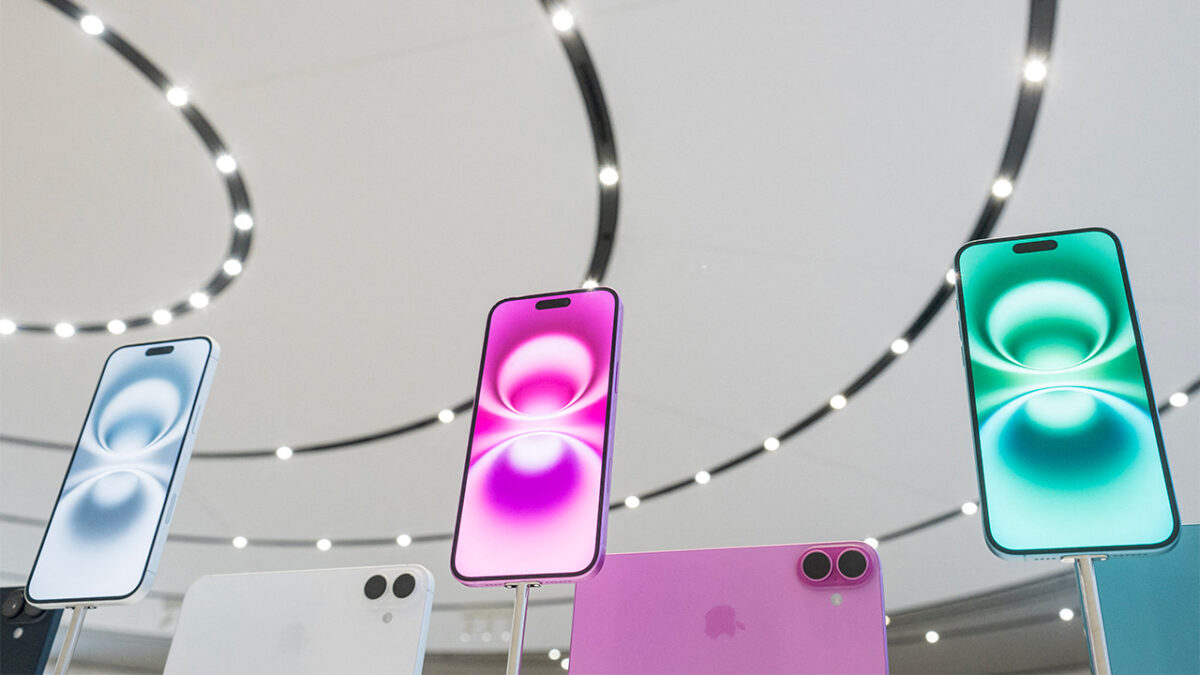Apple Unveils IPhone 16 With AI At Its Core

Apple has launched its latest smartphone, the iPhone 16, in a bid to revitalise its flagship product by incorporating artificial intelligence (AI) at the heart of the device. This move is seen as an effort to persuade consumers to upgrade by offering cutting-edge features driven by generative AI.
Tim Cook, Apple’s CEO, described the iPhone 16 as the first model to be designed specifically for AI, promising "breakthrough capabilities." Speaking at the Steve Jobs Theatre in Cupertino, California, Cook emphasised the importance of AI to the future of Apple’s product line.
The new iPhone 16 will be available to pre-order this Friday, ahead of its official release on 20th September. With iPhone sales waning, the company is banking on its new AI-driven features to rekindle customer interest, notably through its latest operating system, iOS 18.
Despite the focus on AI, some analysts said the launch was short on surprises. Apple’s shares remained flat by the close of trading, reflecting a muted response from investors. However, Wall Street experts predict that the AI enhancements may boost sales next year. The company’s new "Apple Intelligence" features—such as an enhanced Siri, photo editing tools, writing aids, and access to OpenAI’s ChatGPT—are expected to appeal to consumers. Apple has entered into a partnership with OpenAI, allowing iPhone users to use ChatGPT without extra costs.
The tech giant announced that many of these AI features will be available in US English by October, with “localised English” versions arriving in December for the UK, Australia, Canada, New Zealand, and South Africa. Next year, Apple will expand support to Chinese, Japanese, French, and Spanish speakers.
Among the most anticipated features are the upgraded Siri assistant, writing aids, and enhanced email and notification summaries. These represent the first wave of Apple’s AI integration, which will also extend to iPads and MacBooks.
Users can expect ChatGPT integration on iPhones before the year’s end, albeit slightly later than the productivity tools that will launch in October. Apple’s collaboration with OpenAI could extend further, with speculation mounting about a possible investment in the AI firm. This follows concerns earlier this year that Apple risked falling behind competitors like Google, Microsoft, and Meta in the AI space.
Paolo Pescatore, from PP Foresight, noted the increasing competition in AI, comparing it to the previous arms race over smartphone camera megapixels. “It’s now about who has the strongest AI platform,” he said, highlighting the ongoing uncertainty around the return on investment for companies making significant AI bets.
The iPhone 16 will be available in four versions: the Pro, Pro Max, Plus, and the standard model. The base model starts at $799, with the Pro priced at $999, and the Pro Max reaching $1,199. The key differentiators between these models lie in screen size and camera capabilities, with the Pro and Pro Max offering larger displays and more advanced cameras.
The iPhone 16 is powered by the A18 chip, which promises significant improvements in performance, particularly for running AI applications directly on the device. According to Sribalan Santhanam, vice-president of Apple’s silicon engineering group, the A18 chip is up to 30% faster than the processors found in the iPhone 15, marking a leap in processing power. He also claimed that the iPhone 16 Pro models’ enhanced version of the A18 chip would offer “the fastest CPU in any smartphone.”
In addition to the iPhone, Apple announced updates to its other product lines. The Apple Watch Series 10 will also hit the shelves on 20th September, boasting a larger display, sleeker design, faster charging, and an S10 chip that supports machine learning. The watch introduces a new sleep apnoea detection feature, pending approval from the US Food and Drug Administration (FDA). Prices for the Series 10 start at $399.
Apple also introduced its latest AirPods Pro 2, which will feature a hearing aid function, a clinical-grade hearing test capability, and hearing protection, though these features are also awaiting FDA clearance.
Leo Gebbie, of CCS Insight, noted that the iPhone 16 series is critical for Apple at a time when demand for new smartphones is slowing. He emphasised that the new AI features, branded as Apple Intelligence, will shape the iPhone’s future for the next decade.
Following the event, Matt Farrell, an analyst at Piper Sandler, gave a neutral rating on Apple’s shares, saying the event was “largely as expected.” He also remarked that Apple’s AI features would likely require some time for users to fully grasp.
Nabila Popal, from the International Data Corporation, pointed out that Apple’s focus on AI is a long-term strategy. “While we might not see a massive impact right away, Apple Intelligence has the potential to completely redefine the smartphone experience, just as the first iPhone did,” she said.
World Liberty Seeks Federal Trust Charter
World Liberty Financial, the crypto venture backed by the Trump family, has applied for a US national bank trust charter... Read more
Saudi Banks Tap Overseas Markets
Saudi Arabia’s banks are borrowing from international markets at their fastest pace on record, as lenders try to squar... Read more
Amazon Continues To Cut 16000 Gone
Amazon has announced plans to cut a further 16,000 roles from its corporate workforce, extending the cost and organisati... Read more
The UK May Have A Voice In Ai
Europe’s AI sector has grown accustomed to playing catch-up. Capital has flowed more slowly than in Silicon Valley, va... Read more
Musk Applies Pressure To BT
Britain’s broadband market has spent the past decade locked in a familiar pattern. Incumbents invested heavily in fibr... Read more
Blackrock Sees EMEA Moving Into Private Assets
BlackRock has warned that investors across Europe, the Middle East and Africa are reshaping portfolios in response to wh... Read more

